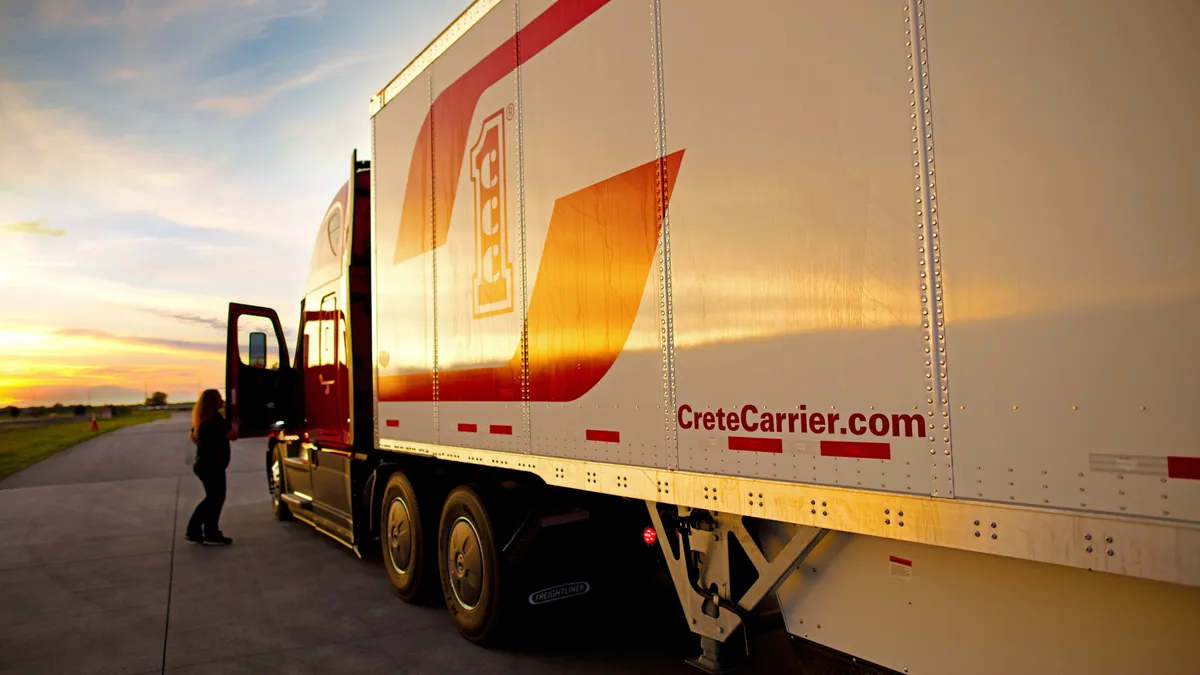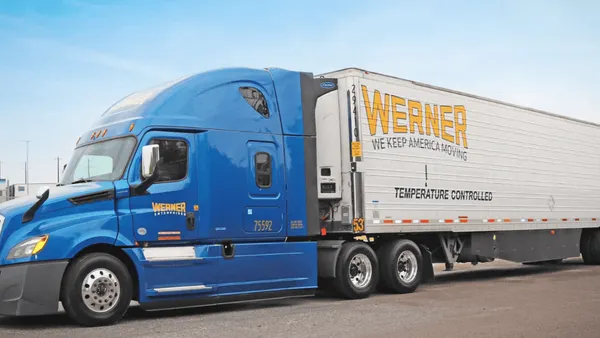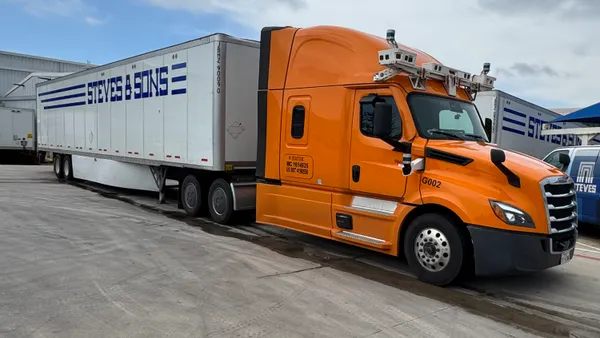CHICAGO – Tim Aschoff believes better times are ahead for trucking.
The Crete Carrier president and COO based his outlook on improving lead time requests from the Nebraska-based truckload carrier’s customers.
“We’re actually seeing our shippers get more normal, back to where they used to be in 2019, so their networks are much healthier,” Aschoff said during the annual Journal of Commerce Inland Distribution Conference on Sept. 26.
The carrier executive sees good reason for his company and its customers to be optimistic. Recent tender lead time requests for dry van have returned to a more normal average of about five days, while reefer has been closer to four days, depending on the cargo, he said.
As Crete awaits a rebound in truckload rates, its long-term customer relationships and scale have buoyed the business through a period of rising operating costs.
“We’re seeing much more predictable numbers, which is great because we want our customers to be healthy,” he said.
Customer relationships, experienced drivers provide stability
Stability is important to Crete, which is why its focus throughout its operating history is to develop long-term relationships with customers, Aschoff said.
“We haul everything on our trucks, our credit, our drivers,” he said. “We don’t haul any broker freight, we don’t broker any freight, so those relationships are very important to our long-term success.”
This is why Crete values its customer service representatives — the people who work directly with shippers.
“The CSR is very critical,” Aschoff said. “Where we differentiate ourselves is that quality of service, that quality of assets, the quality of our drivers.”
Experienced drivers are part of providing good service, he said. With Yellow Corp. bankrupt and soft freight conditions driving other carriers out of business, it has left experienced drivers seeking work.
Aschoff said Crete’s business has grown in the past 10 months. While the company prefers long-term contracts, it has adapted to an environment where shippers expect competitive rates but also want reliability even with short-term arrangements.

“We really looked at this as an opportunity to grow and this is when we hire good quality drivers,” Aschoff said. He recognizes the freight market ebbs and flows and that his company must also work with single transaction customers.
A bullish outlook, despite high costs
Wholesale inventories suggest the freight market could experience a “normal fall peak,” Aschoff said.
Where uncertainty lingers is in the excess capacity that’s still in the marketplace, he said. His firm — and other trucking companies with established customer bases and resources to ride out a downturn — underestimated how long smaller carriers would continue operating, but that also appears to be changing.
Crete has been approached by shippers that previously worked with smaller carriers and freight brokers that couldn’t accommodate their needs, Aschoff said.
This doesn’t mean Crete is accepting every job, he said. But if the work makes sense, the carrier will consider the opportunity.
Truckload contract rates could increase between 3% and 5% over the next year, Aschoff said, which the Crete president views as low. He said shippers are anticipating an increase but what they’re willing to accept is uncertain.
Adding to these upcoming pressures, trucking already faces the highest operating costs on record, Aschoff acknowledged. Persistently weak economic conditions could drag out a freight rebound, he noted. But he expects the TL sector to eventually recoup its costs.
“As truckload carriers, particularly in the asset base, we’re at a cost point,” Aschoff said, “where we’re going to have to have cost recovery.”












